Russian Defense Minister Visits Iran After US Releases $6 Billion
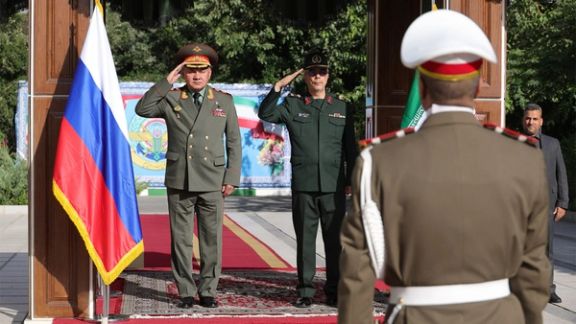
The defense minister of Russia arrived in Iran for a meeting with Iranian military officials, one day after the United States released $6 billion of Iran's frozen funds.

The defense minister of Russia arrived in Iran for a meeting with Iranian military officials, one day after the United States released $6 billion of Iran's frozen funds.
Sergei Shoigu led a delegation of military representatives from Russia during his visit on Tuesday.
Shoigu was invited by Major General Mohammad Bagheri, who serves as the Chairman of the Chiefs of Staff of the Iranian Armed Forces.
The visit coincided with the release of $6 billion frozen for five years in South Korean banks due to US sanctions. The Biden administration's decision to unblock the funds has faced criticism from Republicans, experts, and many Iranian Americans. Some critics have pointed out that the money will enable Iran to produce more weapons and pose a higher threat level.
The Islamic Republic has been a significant military supporter of Russia in its war on Ukraine. Since last July, both Kiev and US officials have repeatedly expressed concerns over Iran's military shipments to Moscow, including the supply of kamikaze drones.
Despite overwhelming physical evidence, Tehran has insisted that it does not supply weapons to Russia.
The United States, the United Kingdom, the European Union, Australia, and New Zealand have all implemented multiple rounds of sanctions against Iran for drone shipments to Russia.
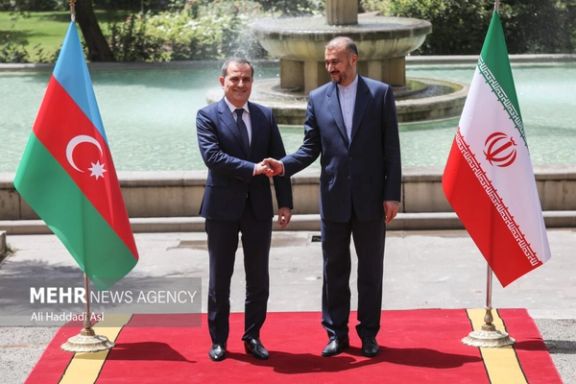
Iran's Foreign Minister and his Azerbaijani counterpart discussed recent developments in the Caucasus, amid Baku's renewed military action in Nagorno-Karabakh.
According to Iranian state media, Hossein Amir-Abdollahian and Jeyhun Bayramov had a telephone conversation on Tuesday.
During their conversation, they addressed the situation in Karabakh and the current conditions along the borders of Armenia and Azerbaijan. Iran has close ties with Armeina, which has a four-decade old conflict with Azerbaijan over Magorno-Karabakh, an Armeian-populated enclave inside Baku's international borders.
Azerbaijan shelled the region on Tuesday, a move that could potentially lead to a new conflict in this volatile area.
Baku justified its actions as necessary to restore constitutional order and remove Armenian military forces from the region. Karabakh is internationally recognized as Azerbaijani territory, but it is partially controlled by breakaway ethnic Armenian authorities who consider it their ancestral homeland. The region has been the focal point of two wars, the most recent in 2020, since the dissolution of the Soviet Union in 1991.
It remains uncertain whether Baku's actions will escalate into a full-scale conflict involving neighboring Armenia or if they will remain a more limited military operation.
The conflict has the potential to alter the geopolitical dynamics of the South Caucasus region, which is intersected by crucial oil and gas pipelines. Iran has previously cautioned against any changes to the political landscape of the Caucasus region and the adjustment of international borders.
Iran has declared that if either side seeks to alter the geopolitical situation in the Caucasus or international borders in the Karabakh region, it will abandon its neutral stance and respond directly.
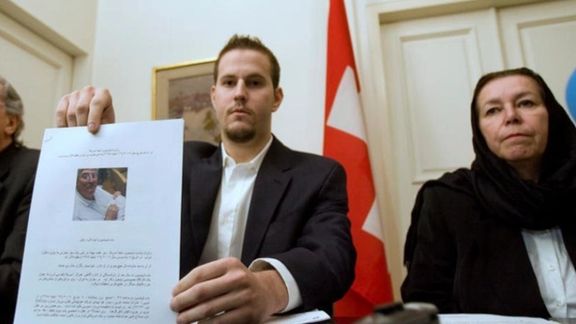
Families of Iran’s hostages not included in the US prisoner swap deal have called on Washington for an explanation on the fate of their loved ones.
The family of retired FBI agent Bob Levinson, who disappeared in Iran in 2007, and the daughter of Jamshid Sharmahd, who is on death row in Iran, issued separate statements after the regime freed five American citizens in exchange for $6 billion and five Iranians detained in the US. The other American resident that was not included in the deal was Shahb Dalili, an Iranian citizen with permanent residence status in the United States who remains imprisoned in Iran.
Dalili, a former captain of Iran Shipping Company and a US resident, was arrested during a trip to Tehran in 2016 for his father's funeral, after which he was apprehended by Iranian security forces. His family held several rounds of sit-ins outside the White House, the latest of which was in August. Darin Dalili, Shahab Dalili's son, has repeatedly pointed out the apparent contradiction with the Robert Levinson Law, which addresses the return of hostages, including US permanent residents. Highlighting a discrepancy between policy and practice, he underlined that despite this law, a green card holder remains imprisoned in Iran without clear resolution or intervention from US authorities.
Levinson, a former FBI agent, was taken prisoner by Iran’s intelligence apparatus while conducting an unauthorized freelance investigation on Kish Island, off Iran’s southern coast. Iranian officials have never explicitly acknowledged detaining Levinson, while US officials believe he was held as a possible bargaining chip.
During an interview with CBS in 2012, former President Mahmoud Ahmadinejad did not deny that Levinson was being held and implied there had been talks of a prisoner exchange. His family announced that he was presumed dead in March 2020, on the advice of US officials.
The Levinsons said in their statement, “We will never stop demanding that Iranian leaders answer for what happened to Robert Levinson, the greatest man we have ever known. His abduction on Iranian soil in March 2007, his years of imprisonment with a total lack of any human rights or decency, and ultimately his murder, are on their hands.”

They described the release of the Americans as part of the new deal as “good news,” saying, “Today is a great day because American hostages unjustly held by the government of Iran have been returned to their families... But make no mistake: Today’s good news does not end our family’s nightmare and ongoing pain. Nor does it mask or excuse the shameful cruelty and unending lies of the Iranian regime.”
They also expressed gratitude to the Biden Administration for sanctioning former President Mahmoud Ahmadinejad and Iran’s Ministry of Intelligence (MOIS) "for their involvement in the constant promotion of lies about Robert Levinson’s whereabouts that still persist to this day.”
Immediately after the release of the hostages – at least three of whom are Iranian-Americans -- President Joe Biden announced fresh sanctions on the hardline former Iranian president and the country’s notorious intelligence ministry over the still undetermined fate of Levinson.
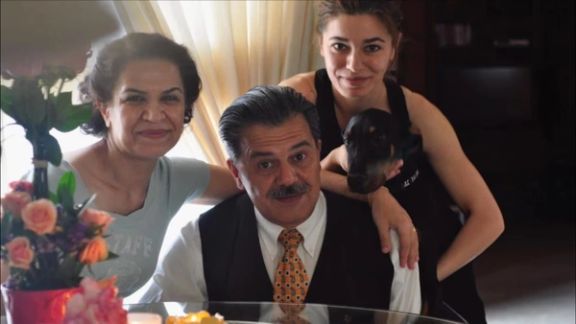
Sharmahd, who holds German and Iranian citizenship and is a US permanent resident, was abducted by Iranian agents in Dubai in 2020, smuggled to Iran, and sentenced to death in February. He was convicted of heading a pro-monarchist group named Tondar accused of a deadly bombing incident that occurred in 2008 at a religious center in Shiraz, killing 14 and injuring 215 more.
Having actively sought US officials' attention through sit-in protests outside the State Department to advocate for her father's case to no avail, Sharmahd's daughter, Gazelle, urged Biden – and German Chancellor Olaf Scholz -- to explain how they are going to ensure her father "will be safe and alive and not murdered."
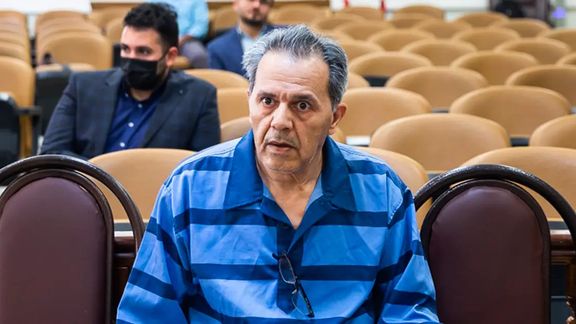
"The last American patriot left behind in a hostage release in 2015 was Bob Levinson, and we all know that cost him his life,” she stated. “At this point, President Biden and Chancellor Scholz owe our family an explanation of how they will redouble their efforts to make sure this horrific hostage-abandonment deal will not cost my dad his life and get him out of the torture chamber to rejoin our family, and what do they plan to do about this in weeks, not months or years."
Referring to her father’s death sentence, Gazelle said her father “was left behind to die.”
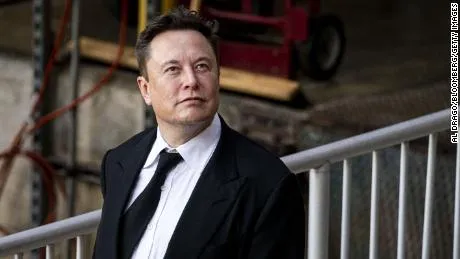
Elon Musk has revealed the regime's dissatisfaction with the launch of Starlink internet services in the country, satellites smuggled into the country amid widespread internet shutdowns.
Musk, who owns SpaceX and the Starlink satellite internet service, shared a letter from the regime's leadership during his meeting with the Israeli Prime Minister in California on Monday.
During their one-on-one conversation, the American tycoon said it happened at the time when Starlink satellite internet was connected in Iran in a bid to give widespread internet access to the millions affected by state shutdowns.
After the nationwide protests began in Iran last year, triggered by the death of Mahsa Amini in detention, the Iranian government severely restricted internet access for its citizens. In response to the restrictions, which included complete and periodic internet shutdowns and slowing down internet speeds, the US government lifted some restrictions on exporting internet services to Iran, allowing SpaceX to provide satellite internet services in Iran.
In response to the support from US authorities for activating satellite internet in Iran, the spokesperson for the Iranian Ministry of Foreign Affairs called the action a "violation of Iran's sovereignty" and threatened that such "efforts will not go unanswered."
However, Iran had not previously disclosed it had gone directly to Elon Musk himself to cut off Starlink services. The move was ignored, and after a year, there is still no news of Starlink being cut off in Iran.
In December, the head of the Union of Communication and Telecommunications Devices in Tehran confirmed the entry of 800 Starlink internet receiver devices into Iran and spoke of the "significant growth in the potential use of the devices" in the future.
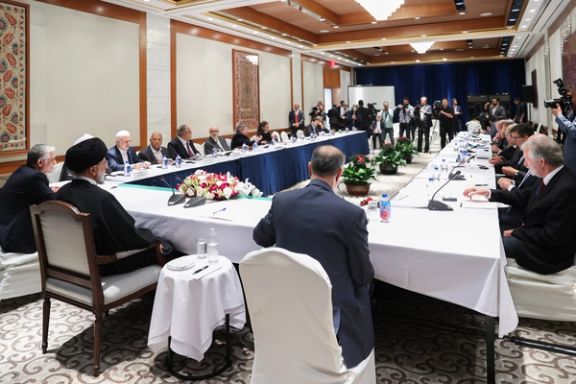
Iranian officials visiting the United States for the UN General Assembly have declined to disclose the size of President Ebrahim Raisi's accompanying delegation.
Iran typically keeps the size of its presidential delegation for UN General Assembly visits secret, with previous trips having brought controversy when it was revealed that family members accompanied the president's delegation.
During the current UN General Assembly session, delegation members refused to answer Iran International's correspondent, Arash Aalaei's questions on the makeup of the delegation, instead pushing away the camera and insulting Aalaei.
Last year, when Raisi and his extensive entourage departed from the United States, they did so with a substantial amount of goods, in spite of ordinary Iranians struggling to make ends meet amid a 50-percent annual inflation rate.
On a separate occasion, Iran International correspondent Maryam Rahmati confronted Raisi before a meeting in New York on Tuesday, asking, "Mr. Raisi, are you aware that 520 people have been killed on the streets of Iran since the death of Mahsa Amini? Have you inquired with the security forces about the reasons behind these street killings?" However, Raisi remained silent and did not provide a response.
Raisi arrived in New York on September 18 to participate in the 78th UN General Assembly. Alongside his trip, a prisoner exchange took place between Iran and the United States.
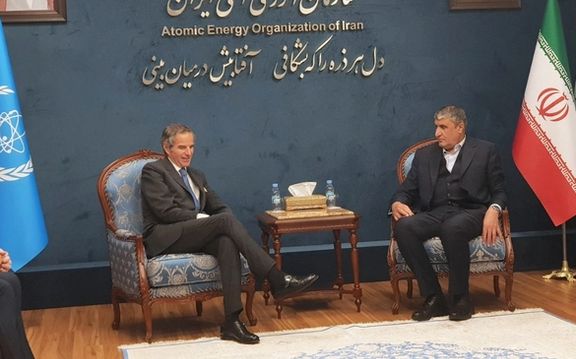
Following Iran's move to bar IAEA inspectors from monitoring its nuclear activities, a hardliner close to the Supreme Leader has once again called for leaving the NPT.
Earlier on Monday, the US and E3 (The United Kingdom, France and Germany) issued a statement condemning Iran's move a few days after the IAEA announced that Iran has withdrawn the designation of several UN inspectors assigned to conduct verification activities in Iran under the Non-Proliferation Treaty Safeguards Agreement.
According to conservative website Alef in Tehran, Hossein Shariatmadari, the editor of the Kayhan daily which is funded by Khamenei's office, wrote: "The United States has currently under no obligation about the JCPOA. At the same time, Europe has neither acknowledged nor fulfilled any one of its commitments under the nuclear deal. It is only Iran that has made so many concessions and brought its nuclear facilities on the brink of destruction despite enduring decades of economic and political pressure and is also expected to accept further commitments if it continues its presence in the JCPOA."
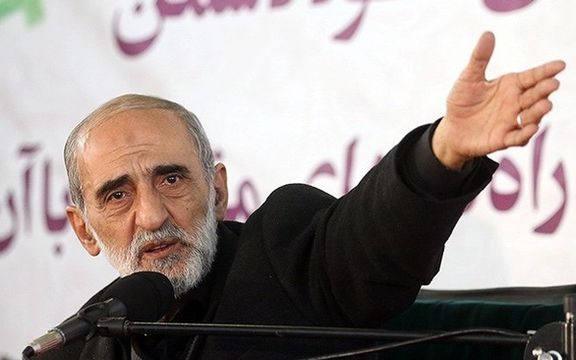
Shariatmadari further claimed that "the Raisi administration has heroically resisted against powerful countries and the United States' arrogance and has even humiliated them at times." He referred to the recent comments by the Iranian foreign minister in which he said, "Iran will not leave any hostile act by the United States without a response."
He added that "Iran's presence in the NPT is detrimental to Iran and provides an opportunity to the enemies to blackmail Tehran and hinder its progress." He asked: "Why should Iran remain in the Non-Proliferation Treaty while the United States refuses to fulfil its commitments and China and Russia have no objections to Iran's withdrawal from the treaty?"
Shariatmadari's comments came hours after the US and three European allies condemned Iran’s move to bar IAEA inspectors, considering it another step in the wrong direction. IAEA Director Rafael Grossi characterized Tehran's move as non-constructive, adding that it was not a step in the right direction.
Grossi emphasized that the only way that Iran could dispel any doubts about its nuclear program is to allow the IAEA to inspect, noting that “If they allow us to work, then there will be confidence; otherwise, it will be very complicated.”
Meanwhile, Iranian analyst Ali Bigdeli warned that barring the IAEA inspectors would pave the way for the issuance of a UN Security Council resolution against Iran. He added that Iran's move will not lead to the revival of the JCPOA, as the next meeting of the agency is likely to issue a warning to Iran and send the case to the UN Security Council.
Bigdeli noted that in the previous cases, Iran used to show some flexibility and offer concessions to the IAEA to prevent the issuance of a resolution. Last week, 24 countries that are members of the IAEA in a statement assessed Iran's cooperation with the agency as "insufficient." In response, the Iranian Foreign Ministry branded IAEA experts as "illiterate" and denied that Tehran had refused to cooperate with the UN nuclear watchdog.
Media expectations suggest that President Ebrahim Raisi is likely to face tough questions in New York during the UN General Assembly, as politicians and reporters will certainly ask him about this development and its timing, especially after some of Iran's frozen assets abroad have been released.






